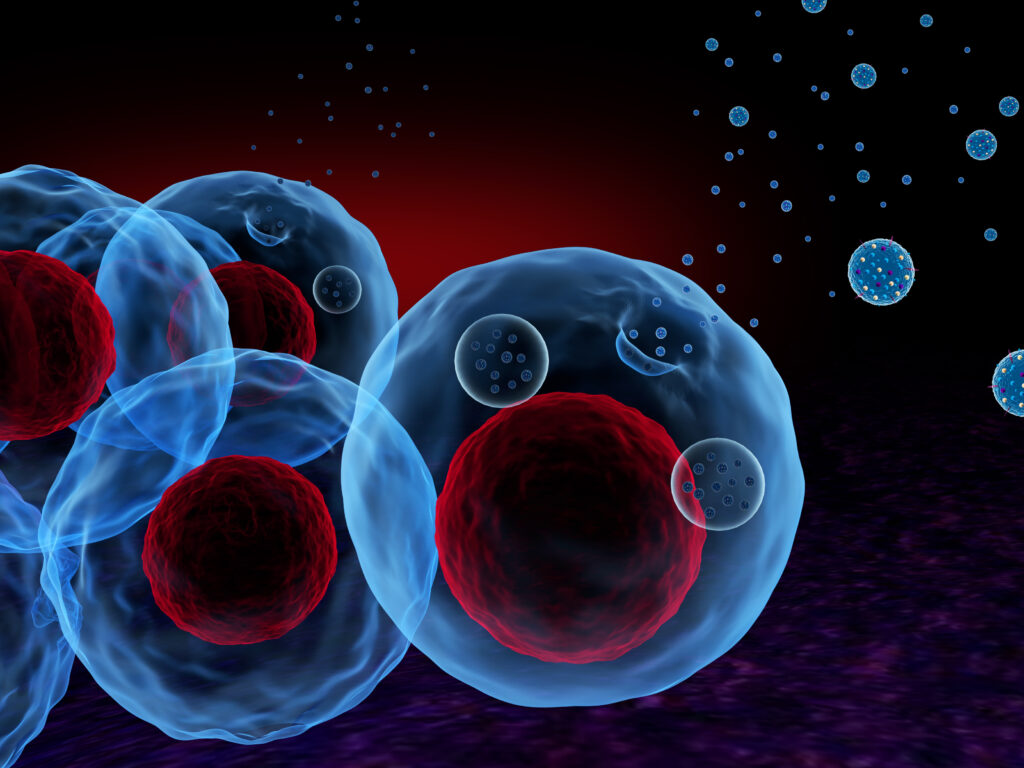Cerebral ischemic stroke poses a significant challenge as one of the leading causes of adult disability worldwide. The detrimental effects of stroke can leave individuals with long-term neurological deficits, making urgent treatment and effective rehabilitation crucial. Recent research has explored innovative strategies to mitigate neuronal damage, and a promising avenue involves the transplantation of exosomes derived from human Wharton’s jelly mesenchymal stromal cells (WJ-MSCs).
In a groundbreaking study led by Yu-Sung Chiu and colleagues, the protective effects of WJ-MSC exosomes were investigated in both cellular and animal models of cerebral stroke. Previous research has already established that the transplantation of WJ-MSCs can reduce neuronal damage and enhance recovery in stroke-afflicted animals. This new study builds on that foundation by focusing specifically on exosomes, which are small extracellular vesicles that carry proteins, lipids, and RNAs and are known to play a significant role in intercellular communication and regeneration.
The experimental design involved exposing rat primary cortical neuronal cultures to glutamate, a neurotransmitter that can induce neuronal death when present in excessive amounts. The administration of WJ-MSC exosomes demonstrated a remarkable ability to counteract glutamate-induced neuronal loss and significantly decreased apoptosis, as indicated by reduced TUNEL staining—a marker for DNA fragmentation in dying cells.
To further validate the efficacy of exosome therapy, adult male rats were subjected to a 60-minute middle cerebral artery occlusion (MCAo), a common model for studying ischemic stroke. Following the occlusion, exosomes or a control vehicle were administered via tail vein injection shortly after the procedure. Remarkably, two days post-treatment, rats receiving exosomes exhibited significant improvements in locomotor function and forelimb strength compared to their counterparts. Additionally, these rats showed reduced body asymmetry and improved neurological scores, suggesting a restoration of motor function.
Upon conducting histological analyses of the brain tissues, the results were compelling. The exosome-treated rats displayed a marked reduction in infarction volume, as evidenced by 2,3,5-triphenyl tetrazolium chloride (TTC) staining. Moreover, the treatment led to an increased expression of neuroprotective factors, including bone morphogenetic protein 7 (BMP7) and glial cell line-derived neurotrophic factor (GDNF), alongside anti-apoptotic factors such as Bcl2 and Bcl-xL in the ischemic brain tissue. These molecular changes indicate a robust neuroprotective response facilitated by WJ-MSC exosomes.
The findings from this study present a significant advancement in stroke treatment, highlighting the potential of non-invasive exosome transplantation as a viable therapeutic strategy. The ability to improve functional recovery and reduce brain damage through early post-treatment with WJ-MSC exosomes opens new avenues for developing effective interventions for stroke patients.
The research team behind this promising study includes Yu-Sung Chiu, Kuo-Jen Wu, Seong-Jin Yu, Kun-Lieh Wu, Chang-Yi Hsieh, Yu-Sheng Chou, Kuan-Yu Chen, Yu-Syuan Wang, Eun-Kyung Bae, Tsai-Wei Hung, Shih-Hsun Lin, Chih-Hsueh Lin, Shu-Ching Hsu, Yun Wang, and Yun-Hsiang Chen. Their collective expertise and innovative approach contribute significantly to the ongoing exploration of regenerative medicine and its applications in neurological recovery.
As we continue to unravel the complexities of stroke and its treatment, studies like this provide hope for improved outcomes and quality of life for those affected by this debilitating condition.


